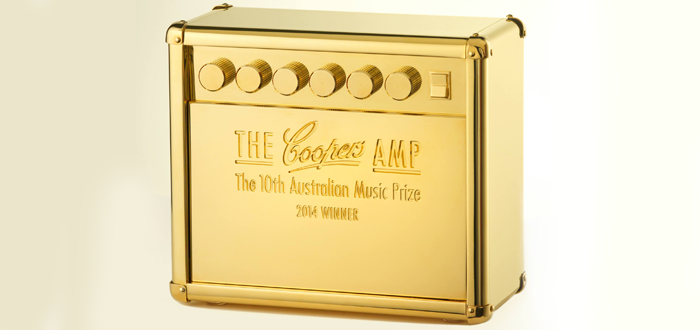Hot Seat: Scott B. Murphy on 15 years of Australian Music Prize

While the big question remains on the viability of the album format, for 15 years the Australian Music Prize has remained the lighthouse of the long-player.
AMP was inspired by Britain’s Mercury Prize, but it has a different structure.
The Mercury has an entry fee of £190 (A$335.10) which restricts entries to about 200 a year, and its first round of entries is decided by record companies.
It has a dozen judges, and as a result, faces criticisms for ignoring heavy metal in its 27 years, and its choice of folk and classical titles are dismissed as tokenism.
AMP, on the other hand, is selected from the start by its judges, who are made up of musicians, music retailers and music media.
The amount of eligible entries has doubled from 250 five years ago, to 480 last year and 500 this year.
As a result, along with a new logo and website design for its 15th Birthday, AMP has bumped up the number of judges from about 20 to almost 40.
Australian Music Prize director Scott Murphy Scott B. Murphy takes on this week’s TMN’s Hot Seat.
Q: The doubling of the number of entries became a burden on the judging panel?
SBM: Not every judge has to listen to every album. But it was still a burden, and the pressure was getting annoying.
So we decided that the same panel didn’t have to do all three stages of judging.
We opened it up and invited a wider selection of the industry for that initial stage, who could get through those 500 albums without grief.
The requirements are the same: they have to be recommended by other executives from the music industry on the criteria they must have good ears, and they can listen to a heavy metal record followed by a jazz record and a rock record and they know what they’re talking about.
For music media it has to be part of their working job and they must listen to new releases on a weekly basis.
Q: AMP is the constant reminder that technology and consumer behaviour may have gone through a sea-change but the long-player is still essential listening.
SBM: From the AMP’s point of view, artists still write albums, record albums and release albums in the way they want to be heard.
Many hate the fact they’re cherry-picked by consumers.
The AMP will be alive and healthy, as long as the artist still believes in the album format and in making them.
That’s obviously so because the number of albums being made and released is sky-rocketing.
Q: We know that after winning or being nominated for an AMP, acts find gigs are more consistent, get to make new music and have actually met industry execs at AMP events who have gone on to give them a helping hand. What’s a really good example of this?
SBM: The most recent example was A.B. Original.
Winning the AMP was the kick-off of an incredible period of exposure which saw them winning ARIA awards and playing with Paul Kelly at the APRA awards.
Reclaim Australia had been out for a while, but not talked about as much.
The thing about winning an AMP is not just that the winners’ publicity doubles overnight because obviously more media outlets are talking about them.
It’s also a lasting legacy. Ten years down the track and the opening paragraph of an article on them invariably makes the point they won an AMP.
The Drones who got the first one (2005, Wait Long By the River And The Bodies Of Your Enemies Will Float By) told me a year later how they’d been really desperate for the $30,000 prize money because they were broke.
But more importantly, they started getting better spots at festivals around the world.
They were no longer just another Aussie pub-rock band touring Europe, they had the additional kudos of having won an AMP.
Q: How long before the AMP winner’s event becomes a TV event as well?
SBM: When AMP began, I spoke to the Mercury Prize people and regarding TV they decided not to do anything about it until an outside organisation stepped in and made an offer.
So I’ve taken that same approach as well.
But this is the 15th AMP and in an ideal world, we won’t be producing a TV show but will at least get more TV coverage around it.
But for that, it would have to be a night-time event, not held at lunch-time as it has been.
But it would be only for the 15th, to be bigger and better, where we’d probably get together all the previous winners.
Q: Over the 15 years, which album caused the fiercest discussion between the judges?
SBM: I’d say the Sampa The Great year (2017), the judging panel was 50:50 (split) between Birds And The BEE9 and another title.
So there was a lot of …not arguments, but passionate discussion going on in that meeting.
Q: Why would you say ‘argument’ is the wrong word?
SBM: Because the discussions are very respectful. I’d use the term ‘passionate debate’.
That’s happened for most years.
But the year A.B. Original won (2016), the final decision meeting only lasted for 30 minutes because the judges had pretty much decided on Reclaim Australia before they got there.
That was unusual.


































